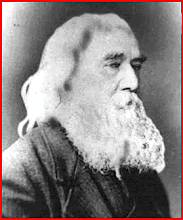All have written more that are fantasttic, but with limited resources and the thought police approaching, three are essential. They are: Isabel Paterson's The God of the Machine, Rose Lane's The Discovery of Freedom, and Ayn Rand's Atlas Shrugged. John Chamberlain, a brilliant libertarian, stated:
These books made it plain that if life was to be something more than a naked scramble for government favors, a new attitude toward the producer must be created.
Each was an original thinker in her own right. But each also made a mark as a great popularizer of liberal ideas. A few beleaguered liberal economists had argued, with great force, that no planned economy could match the productive efficiency of a capitalist system. Yet these economic arguments, despite their technical force, were unable to match the power of the utopian socialist vision to capture the popular imagination. These three -- Lane and Paterson almost entirely bereft of formal education, Rand writing fiction in an adopted tongue -- did just that. The sweeping histories of Lane and Paterson chronicled humanity's ascent from barbarism to civilization in a way that uncovered the necessary links between civil liberties, stable property rights, and material progress. Even more successful was Rand's allegorical tale of a brash and brilliant young architect struggling to maintain the integrity of his work in a profession where his independence of mind is despised and resented. Above all a romantic epic, The Fountainhead also served up a blistering satire of the day's intellectual fads and hinted at the Objectivist philosophy of rational self-interest that she would develop in greater detail in her Atlas Shrugged.
The effect the trio had was no accident: they were frequent correspondents (and friends too, at times) who saw each other -- despite quarrels over fine points of ethics or conflicting religious views -- as comrades in arms engaged in a war of ideas.The odds in that war looked less than encouraging, however: even the captains of industry who were emblems of the free enterprise system had, as often as not, succumbed to the prevailing orthodoxy. Undaunted, Rand wrote to Paterson in 1945: "You were right, we can do it without their help. We'll have to save capitalism from the capitalists."
Surveying the disheartening intellectual climate of the '40s, F. A. Hayek wrote:
We must make the building of a free society once more an intellectual adventure, a deed of courage.... Unless we can make the philosophic foundations of a free society once more a living intellectual issue, and its implementation a task which challenges the ingenuity and imagination of our liveliest minds, the prospects of freedom are indeed dark. But if we can regain that belief in the power of ideas which was the mark of liberalism at its best, the battle is not lost.
The battle, history has since shown, is not yet lost, and this is due in no small part to Rand, Paterson, and Lane's belief in the power of ideas. Unconstrained by conventional political categories, they savaged the collectivist economic nostrums of the left even while, in their lives and careers, they exploded the rigid gender roles seen as sacrosanct by so many on the right. In the process, they laid the foundations of the modern libertarian movement. Cato.org
But, remember the reading of great works will strecth the mind beyond its ability to go back....be careful.

No comments:
Post a Comment